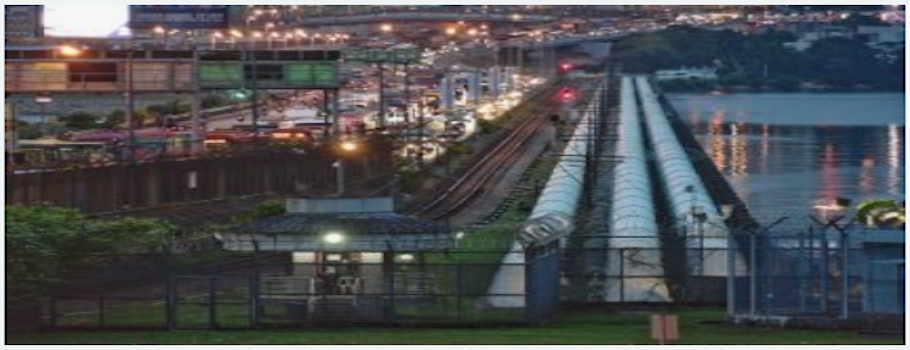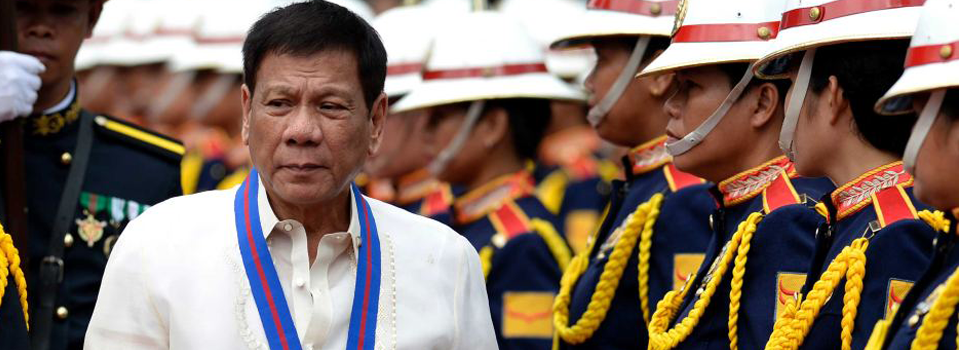[vc_row no_margin=”true” padding_top=”0px” padding_bottom=”0px” border=”none”][vc_column][vc_column_text]Sooner than it takes most dreams to turn into nightmares, the stunning replacement of a corrupt elite in Malaysia by a government legitimised by the popular will is turning against Singapore’s relations with its northern neighbour.
Malaysian Prime Minister Mahathir Mohamad has reverted to form in the two months since he took over from Najib Razak. The combative times that Singapore witnessed in its dealings with Malaysia during his previous premiership are back after a happy 15-year break.
A high-speed railway project connecting Kuala Lumpur to Singapore has been cancelled (or postponed, to take an optimistic view). In its place has appeared a plan to build an island near Singapore’s territorial waters, the military implications of which, if any, will not be apparent until the objective of the exercise becomes clear. Meanwhile, the new government will look again at a proposed trading link between the Singapore and Malaysian bourses.
And, as if all this were not enough, Tun Dr Mahathir has dismissed the price of raw water that Singapore buys from Johor as being ridiculous and wishes to renegotiate the terms of the water deal. Water promises to return to the adversarial climate of the late 1990s.
As if to rub salt into a raw wound, the cancellation of the rail project was announced cavalierly in the media, followed by confusing changes and a dismissive refusal to inform Singapore officially of what was happening.
The proper way to have gone about a review would have been to take the time for a thorough re-assessment and inform Singapore. It would have been easier then for Singaporeans to accept the rationale for the change.
Given the parlous national debt which the Najib government bequeathed to Malaysia before it was ousted unceremoniously, it is only right that the Mahathir administration should re-examine how best to recover Malaysia’s economic integrity.
Indeed, cost-cutting has hit the East Coast Railway Link project, a part of China’s Belt and Road Initiative that would have connected the Malaysian peninsula’s eastern coast to shipping routes in the west. The desire to renegotiate the terms of the agreement with Beijing is driven by the need to reduce the associated costs of building the link, which Kuala Lumpur would have had to bear.
Surely, if Dr Mahathir is willing to take on even China, Asia’s rising power, why should he not wish to re-negotiate economic relations with Singapore?
Part of the answer lies in what Dr Mahathir said during a newspaper interview: “I think the people of Singapore, like the people in Malaysia, must be tired of having the same government, the same party since independence.”
This is rather more than normal political discourse. A government just installed in power is free to review policies. But for it to call for the ouster of a fellow government reveals a streak of Bonapartism in the politics of the New Malaysia which the administration there appears to have inaugurated.
That animus is directed against Singapore. After all, Malaysia has not called for a new government in Beijing even as Kuala Lumpur seeks to renegotiate bilateral agreements with China.
Singapore is different, it appears, because it is a part of the imagined geography of a greater Malaysia.
Herein lies the danger: to turn geography into political instrumentality. Malaysian politics should not swell to the point where it could submerge the Causeway.
The metaphor of the Causeway as a marker of Malaysia-Singapore relations is hardly new. Built during the colonial era, it has symbolised both the geographical convergence between an island and its mainland, and the eventual historical divergence between them.
Singaporeans grasp that reality intensely. Their membership of Malaysia from 1963 to 1965 does not give them a stake in politics there today. Malaysian politics is for Malaysians only to decide, whatever their race or class.
Singapore prizes its sovereignty sufficiently to know that Malaysia prizes its sovereignty. It deals with whoever is in charge there, as one political equal negotiating with another. Hardly any Singaporean carries the political baggage of merger and separation across Customs and immigration.
But it is not obvious that the departure from history is reciprocated across the Causeway. As change bites deeply into the Malaysian system, Singapore could be treated once again as an extension of domestic politics. The city-state could be held hostage to the new government’s dealings with the old one.
This would be unfair. Whatever the reasons for the Najib government having embarked on the rail project, Singapore came on board because of the need to bring the two countries closer through infrastructural connectivity. The benefits would have been mutual.
Given Malaysia’s debt, the new government is re-envisaging the project. But it must pay due compensation to Singapore, and not treat this country as having been complicit in the internal decisions of the Najib government.
Singapore cannot be implicated in Malaysian affairs merely because it established good working relations with the previous administration.
As for water, it goes so closely to the heart of bilateral relations that Malaysians must never forget that it remains a strategic issue – that is, one which touches on the survival of Singapore.
It would be unwise for Malaysians to let their domestic politics transgress the sanctity of the border with Singapore.[/vc_column_text][/vc_column][/vc_row]




